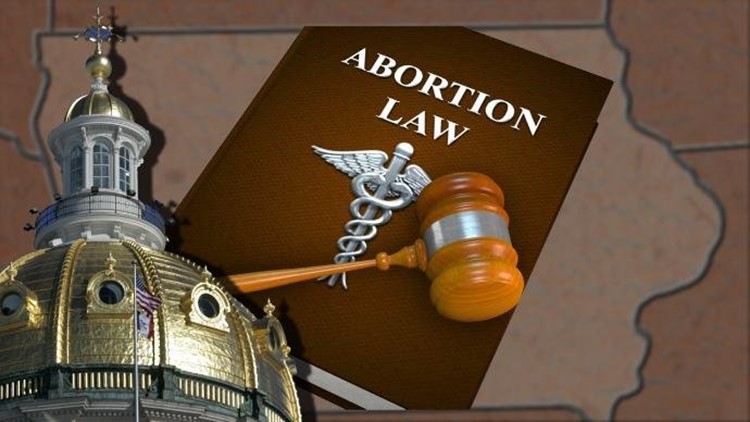DES MOINES, Iowa (AP) — A judge said Friday it will take up to 60 days to consider whether to declare Iowa's fetal heartbeat law unconstitutional or allow a legal challenge filed by abortion providers to proceed to trial.
A decision to strike down the law before trial would likely be appealed to the Iowa Supreme Court.
The law was signed by Gov. Kim Reynolds on May 4, a day after it passed in the Republican-run Legislature. It would prohibit most abortions in the state once a fetal heartbeat is detected, which many medical professionals say is around six weeks of pregnancy. The law is considered one of the strictest abortion measures in the nation.
Although written to go into effect July 1, the legal challenge by abortion providers including Planned Parenthood and the Emma Goldman Clinic halted its implementation.
The providers and the American Civil Liberties Union of Iowa argued in court Friday that the law is "blatantly unconstitutional under clear Iowa law" and Judge Michael Huppert should order the matter settled without a trial in what is called a summary judgment.
Planned Parenthood attorney Alice Clapman said courts in several states that recognize abortion as a fundamental right — North Dakota, Arkansas and Mississippi included — have dismissed similar abortion bans before trial.
"You cannot recognize this right is fundamental and recognize how important it is to have that freedom and then allow the state to come in and ban it," Clapman said.
The Iowa Supreme Court in June struck down an earlier law that required a 72-hour waiting period for women seeking an abortion, ruling that the restriction was unconstitutional and that "autonomy and dominion over one's body go to the very heart of what it means to be free."
The court concluded that a woman's right to abortion is fundamental and the state may not restrict that right unless it can demonstrate that the restriction is narrowly tailored to a compelling state interest.
Attorney Martin Cannon argued for the state that the bill is extremely narrow in focus by saying a beating heart signifies life in a fetus and that human life must be protected once an abdominal ultrasound identifies a beating heart.
"Our position is an unborn child with a heartbeat is just as alive on the way into life as a person with a heartbeat is still alive when they're nearing death. The heartbeat is the defining thing whichever direction you're crossing the threshold from," Cannon said.
He contends the bill does not prevent an abortion, it just pushes women to do it sooner in the pregnancy. He argued there are too many disputed issues to be heard at trial and the judge should not end the lawsuit.



